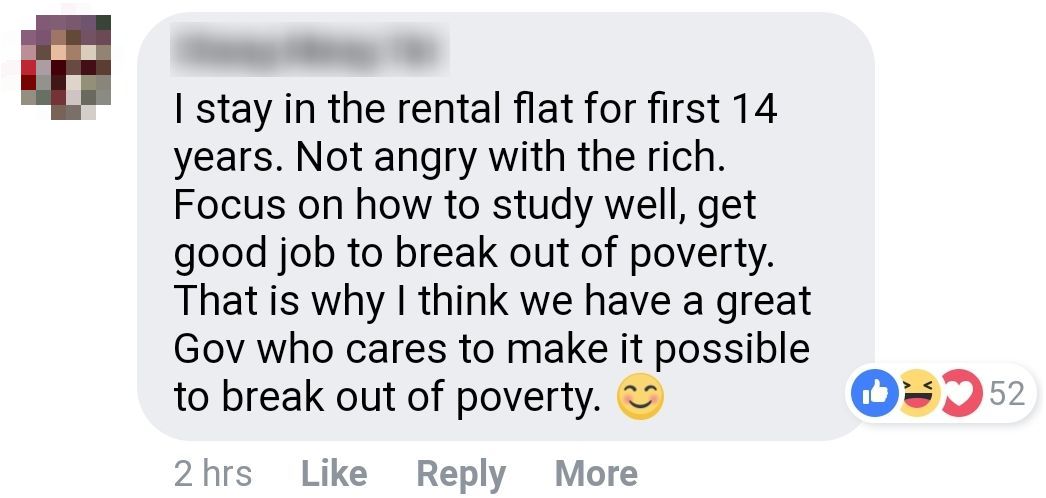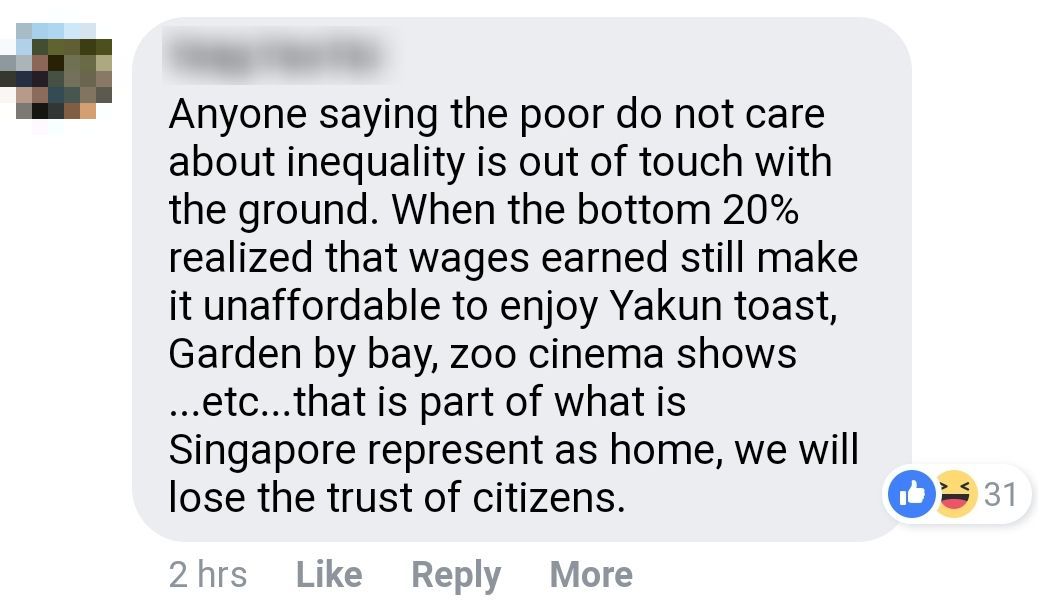Inequality and its challenges for Singaporean society have been a hot topic as of late -- and perennially.
Various public figures such as DPM Tharman Shanmugaratnam and Ambassador-at-large Tommy Koh have talked about it at length, while Manpower Minister Josephine Teo have also weighed in.
And just when you thought you have heard all sides of the argument, it turns out you have heard nothing yet.
Because joining the discussion is the man on the street, this time a Straits Times forum letter writer.
Income equality good for the poor
A Nov. 12 forum letter, "The poor do not care about income inequality", posited that inequality is actually beneficial for the poor.
And that the poor do not care about income inequality.
Written by Kelvin Hong in response to an ST piece, "Psychological factors may explain resistance to more redistribution", by professor Linda Lim, the forum letter claimed that the poor are more concerned with basic necessities and improving the quality of life for themselves and their family.
As such, inequality is beneficial for them as it serves as a motivating factor to work harder.
The escalator model
As everyone is going, "Say what?", it is important to note that the inequality discussion has been steeped in some deep analogy about escalators as of late.
And credit goes to DPM Tharman for finding such a sticky analogy, which makes it both memorable and open to abuse by bending it beyond what it was originally intended to make clear.
Everyone needs to be on "an ever-ascending escalator"
Hong references the model of the escalator, which was first brought up by Tharman at the 30th anniversary of the Institute of Policy Studies (IPS) on Oct. 26.
Tharman said that the greatest need at the moment is "to ensure... that everyone is on an ever-ascending escalator".
Hong elaborated on this analogy by adding that the real issues stem from those who have either fallen off the escalator or remain stationary on it.
Moreover, those who "skip a step up the escalator" help to create "more room for others to ascend".
Hong also stated that the influx of foreign workers and immigration has made the escalator more crowded despite speeding it up -- which in itself is straining the analogy.
What Tharman originally said
In Tharman's original formulation of the escalator model on Oct. 26, he stated "that it is critical that we sustain a system where everyone is moving up".
Tharman also warned of the escalator breaking down for everyone -- which is where Hong's argument diverges from Tharman's given that Hong's position is about how the escalator is working to various degrees for different people.
Here's what Tharman said in full about the escalator breaking down:
"... once that escalator stops, once the escalator that carries everyone up stops, the problems of inequality and all the problems of “me against you”, “this group against that group”, become much sharper, and this is exactly what has happened in a whole range of advanced economies."
More needs to be done in helping the poor
The forum letter ends with the usual refrain though: It calls on the government to do more to ensure no Singaporean gets left behind.
Hong also wrote that while inequality is beneficial as a motivating factor, "we also need to be more aggressive in giving a leg-up to those from low-income families" in terms of training and education.
This is because "opportunity costs", such as "a loss of income", can be "a major hindrance in improving skills and education".
Hong then concluded by calling for both the government and community development councils to ensure that Singaporeans are not denied the chance to improve their skills because of their socio-economic status.
Singaporeans react
Hong's letter received polarised reactions, with most responses either wholeheartedly agreeing or disagreeing with him.
Those who agreed thought the letter made sense.
 Screenshot from Straits Times Facebook
Screenshot from Straits Times Facebook
 Screenshot from Straits Times Facebook
Screenshot from Straits Times Facebook
While those who disagreed questioned if the views were truly reflective of the reality on the ground.
 Screenshot from Straits Times Facebook
Screenshot from Straits Times Facebook
 Screenshot from Straits Times Facebook
Screenshot from Straits Times Facebook
And one commenter took Hong's argument to its logical conclusion.
 Screenshot from Straits Times Facebook
Screenshot from Straits Times Facebook
If you like what you read, follow us on Facebook, Instagram, Twitter and Telegram to get the latest updates.
